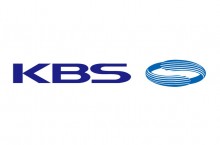Korean Broadcasting System (KBS) is a public radio and television broadcasting network funded in part by the Korean government. First established as a government-controlled radio station by the Japanese colonial administration in 1927, it became the Seoul Central Broadcasting Station following the foundation of the Republic of Korea’s government in 1948. It started broadcasting television in 1961 when the Korean government acquired Daehan Broadcasting Corporation, Korea’s...
More
Korean Broadcasting System (KBS) is a public radio and television broadcasting network funded in part by the Korean government. First established as a government-controlled radio station by the Japanese colonial administration in 1927, it became the Seoul Central Broadcasting Station following the foundation of the Republic of Korea’s government in 1948. It started broadcasting television in 1961 when the Korean government acquired Daehan Broadcasting Corporation, Korea’s first television company. In 1973, it was reorganized under its current name as a public broadcasting corporation. Between 2005 and 2008, the network ran an annual event called KBS Premiere Festival which would showcase noteworthy foreign films never released before in Korea through screenings held both in theaters and on television. Over the years, KBS released in cinemas several theatrical cuts of its more famous TV documentaries such as <Don’t Cry for Me Sudan> (2010) and <Super Fish 3D> (2013), the latter of which took advantage of 3D and Imax technologies. In 2015, KBS produced <Snowy Road>, a 2-part television film about comfort women that was brought two years later to theaters.
Less






